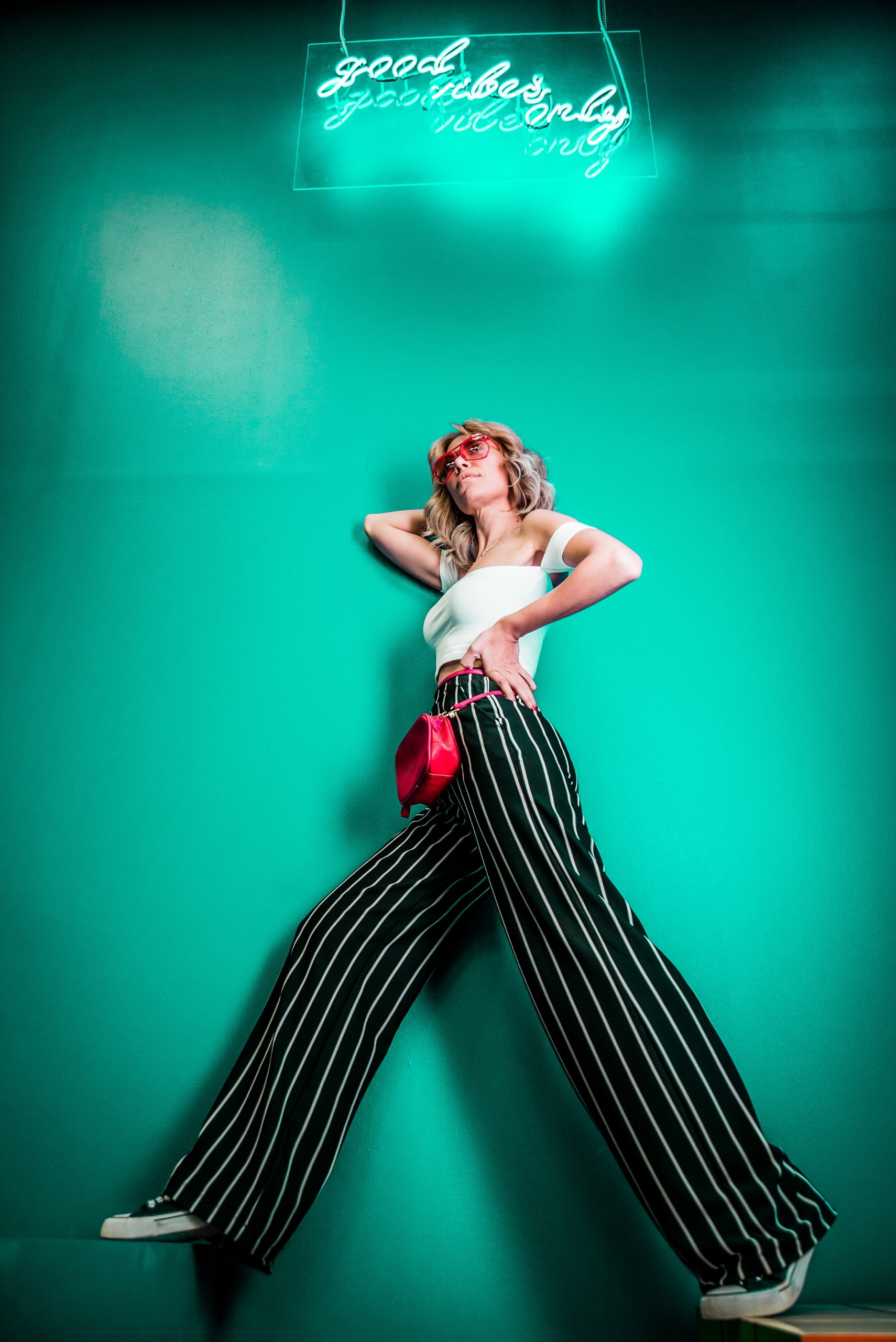
Welcome to the glamorous world of fashion, where style and creativity collide on the runway! Fashion shows have long been a staple in the industry, showcasing the latest trends and designs to captivate audiences worldwide. But behind the scenes, organizing these extravagant events is no easy feat. From selecting models and coordinating outfits to managing logistics and ensuring everything runs smoothly, fashion show planning requires meticulous attention to detail.
With advancements in technology, there’s a new star shining bright on the fashion show stage – Artificial Intelligence (AI). This game-changing technology is revolutionizing every aspect of our lives, including how we plan and execute fashion shows. With AI at your side, you can expect an entirely transformed experience that promises efficiency, precision, and innovation like never before.
We’ll take you on a journey through the evolution of fashion shows and explore the challenges faced by event organizers along the way. We’ll then dive into how AI is making its mark in this glitzy realm of high couture by streamlining processes and offering groundbreaking solutions. So fasten your seatbelts as we uncover how AI is transforming fashion show planning from start to finish!
The Evolution of Fashion Shows
Fashion shows have come a long way since their inception. Back in the day, they were exclusive events reserved only for industry insiders and fashion elites. They were glamorous affairs held in grand venues, showcasing the latest designs from top designers.
But as time went on, fashion shows started to evolve and become more accessible to the public. Thanks to technology and social media, these events could now be live-streamed or shared instantly with millions of people around the world. Fashion became more democratic, with consumers having a direct influence on trends and styles.
With this evolution came new challenges for fashion show planning. The logistics became more complex, with larger audiences and global reach requiring meticulous organization and coordination. Designers had to find ways to stand out amidst the noise of endless content flooding social media feeds.
This is where artificial intelligence (AI) stepped in to revolutionize fashion show planning. AI algorithms can analyze vast amounts of data about consumer preferences, trends, and market insights. This helps designers make informed decisions about everything from venue selection to runway layouts.
AI also enables virtual reality experiences that give viewers an immersive front-row experience without actually being there physically. Virtual models can showcase designs on digital runways while collecting real-time feedback from online viewers.
The benefits of using AI for fashion show planning are manifold. It saves time by automating tasks like seating arrangements or coordinating backstage activities. It enhances creativity by generating unique ideas based on consumer preferences and data analysis.
AI also optimizes resources by predicting demand accurately so that designers can produce just enough merchandise without excess waste or shortage issues.
AI ensures personalized marketing strategies tailored specifically towards potential customers’ preferences.
AI’s ability to analyze big data makes it possible for companies within different niche industries such as sportswear brands,clothing lines etc.,to better understand what types/styles/colors consumers prefer which allows them not only decrease production costs but increase sales overall.
In other words,AI essentially becomes an invaluable tool for designers and fashion brands aiming to succeed in a highly competitive industry.

Challenges in Fashion Show Planning
Planning a fashion show is no easy task. It requires careful coordination of various elements to ensure a seamless and unforgettable experience for both designers and attendees. However, there are several challenges that can arise during the planning process.
One major challenge is time management. Fashion shows have strict deadlines, and it can be difficult to stay on track with all the tasks that need to be completed. From securing venues and models to organizing rehearsals and fittings, every aspect of the show needs to be meticulously planned within a limited timeframe.
Another challenge is budgeting. Fashion shows can be expensive endeavors, with costs ranging from venue rentals and lighting equipment to makeup artists and stylists. Managing finances effectively while still maintaining high standards of production value can present a significant hurdle for event planners.
Logistics play a crucial role in fashion show planning. Coordinating schedules for designers, models, hair stylists, makeup artists, photographers, and other professionals involved in the event can be a logistical nightmare. Ensuring that everyone is available at the right place at the right time requires meticulous attention to detail.
Communication among team members is vital but challenging when planning such an intricate event like a fashion show. Miscommunication or lack thereof could lead to misunderstandings or delays in executing important tasks.
Lastly but not leastly another challenge lies in managing unexpected changes or emergencies that may occur leading up to or during the fashion show itself. Whether it’s last-minute cancellations by models or technical difficulties with sound systems or runway setups – being able to handle these situations swiftly without compromising overall quality becomes critical as they directly impact attendee experience.
Addressing these challenges efficiently is essential for successful fashion show planning – which leads us into exploring how AI technology has been revolutionizing this industry! So keep reading!
How AI is Transforming Fashion Show Planning
The fashion industry is constantly evolving, and with the help of technology, it continues to push boundaries and create new experiences for both designers and consumers. One area where technology has made a significant impact is in fashion show planning.
AI, or artificial intelligence, has revolutionized the way fashion shows are planned and executed. With its ability to analyze vast amounts of data quickly and accurately, AI can provide valuable insights into customer preferences, trends, and even weather patterns.
One way AI is transforming fashion show planning is through predictive analytics. By analyzing past data on consumer behavior and trends, AI algorithms can predict what styles will be popular in the future. This allows designers to curate their collections accordingly and ensure that they are showcasing garments that resonate with their target audience.
In addition to predicting trends, AI can also assist in venue selection for fashion shows. By analyzing various factors such as location accessibility, capacity constraints, and even social media sentiment around specific venues or cities, AI algorithms can suggest the best possible locations for hosting a successful event.
Image recognition technology powered by AI allows designers to efficiently organize their collections by automatically tagging each garment based on color palette,patterns,and style.
AI-powered virtual styling assistants enable quick outfit suggestions,facilitating coordination between models, dresses, and accessories thus saving time during fittings.
AI’s ability to generate realistic 3D simulations also helps streamline the process of designing runway layouts,making it easier for organizers to plan seating arrangements,sound systems,and lighting setups more effectively.
Overall,AI has transformed fashion show planning by providing invaluable insights,intelligent predictions,cost-effective solutions,and streamlined processes. It has become an essential tool for designers,event planners,and brands looking to create memorable experiences while staying ahead of ever-changing market demands.
Benefits of Using AI for Fashion Show Planning
AI technology is revolutionizing the fashion industry in ways we could have never imagined. When it comes to planning a fashion show, embracing AI can bring numerous benefits and streamline the entire process.
AI algorithms can analyze vast amounts of data in a fraction of the time it would take humans. This means that designers and event organizers can quickly gather insights on consumer preferences, trends, and even weather patterns to ensure their show is perfectly tailored to their target audience.
AI can assist in optimizing logistics and resource allocation. By analyzing historical data on attendee demographics and behavior, AI systems can help determine venue capacity requirements, seating arrangements, and even predict how many staff members will be needed at specific times throughout the event.
With its ability to generate 3D virtual simulations based on clothing designs or stage setups, AI enables designers to visualize their creations before production begins. This not only saves time but also reduces costs associated with physical prototypes.
By leveraging machine learning algorithms combined with facial recognition technologies during fittings or backstage preparations, stylists can receive real-time feedback on models’ measurements or makeup suggestions. This ensures precision and efficiency while allowing for quick adjustments if necessary.
One cannot overlook the potential impact of social media analysis powered by AI tools. By monitoring online conversations about fashion shows and brands in real-time across various platforms like Instagram or Twitter using sentiment analysis algorithms; designers gain valuable insight into public reception which informs future decision-making processes.
Conclusion
The fashion industry is undergoing a significant transformation with the integration of AI into fashion show planning. From streamlining logistics to enhancing creativity and personalization, AI has proven to be a game-changer in this dynamic field.
Fashion shows have come a long way from their humble beginnings, and AI is now paving the way for even more innovation and efficiency. As designers, organizers, and brands continue to embrace this technology, we can expect to see more sophisticated and immersive fashion experiences that captivate audiences around the world.
The future outlook for using AI in fashion show planning is promising. With advancements happening at an unprecedented pace across various industries including retail and e-commerce; it’s only natural that these innovations will continue to shape how we plan, execute and experience fashion shows.
So let us embrace this exciting evolution within the realm of fashion show planning as we step confidently into a future where imagination knows no bounds!

